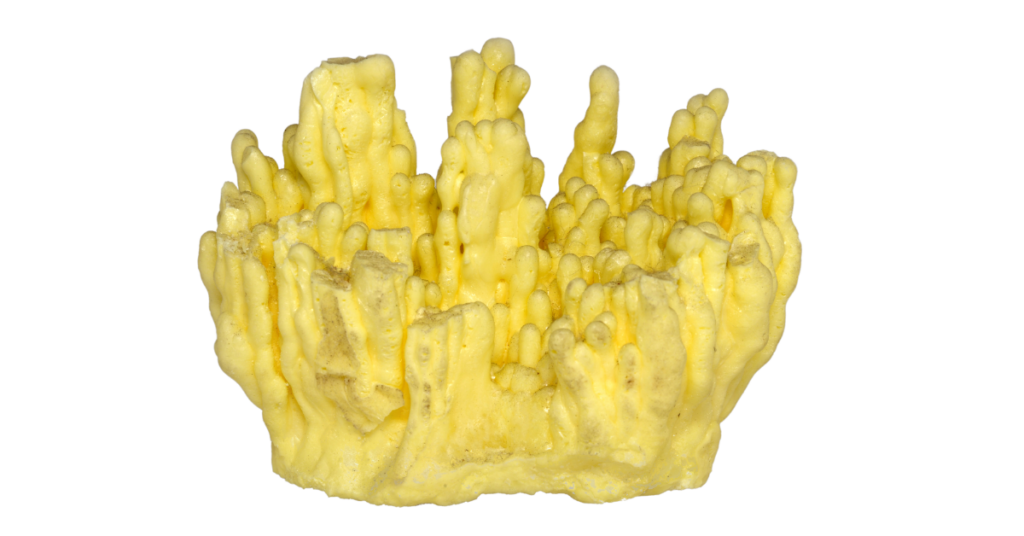Sulphur – Homeopathic Remedy
A product of volcanic eruptions, as well as being found deposited around the edges of hot springs and geysers and in all body tissues. Sulphur has been used medicinally since ancient times.
This mineral is used in both orthodox medicine and homeopathy to treat skin disorders.
Other names: Brimstone, flowers of sulphur.
Parts used
Flowers of sulphur (a bright yellow powder obtained from natural deposits of the mineral).
Uses
Homeopaths may prescribe Sulphur for:
Skin disorders displaying the following symptoms: Dermatitis, eczema, psoriasis; dry, flaky, itchy skin or scalp.
Digestive disorders displaying the following symptoms: Indigestion from drinking milk, regurgitation of food.
Stress and worry displaying the following symptoms: Depression, irritability, sleeplessness, lethargy.
People requiring this remedy will feel worse: In a cold, damp environment; mid-morning; in hot, stuffy conditions; when standing for a long time; drinking alcoholic beverages.
People requiring this remedy will feel better: In sunny weather; with exercise; lying on their right hand side.
People suitable for this remedy are: Often slovenly in appearance, with dry, flaky skin and unkempt hair. They are bright, gregarious souls, but can be rather impractical and finicky.
The information given on this site about homeopathic remedies is just a general overview. Classical homeopathy takes all the patient’s symptoms into account and prescribes upon the “Totality of Symptoms”, thus finding the precise remedy that matches the patient’s symptoms perfectly.
Here, at The CMA we recommend that anyone interested in learning more about homeopathy and the fascinating remedies that homeopaths use should take an introduction course to homeopathy, which will help you to understand how to become a good home first-aid prescriber. This is ideal for ‘acute symptoms’. However, if you want to learn more – with a view even to becoming a professional homeopath, who is educated highly enough to be able to treat chronic conditions, you’ll need to be prepared to spend many years learning this vast and fascinating topic – along with anatomy, physiology and pathology, history of medicine, homeopathic philosophy, and much more. You’ll find both kinds of courses here on this site – head to our section on Find a CMA Member and search under CMA Registered Training Schools.

